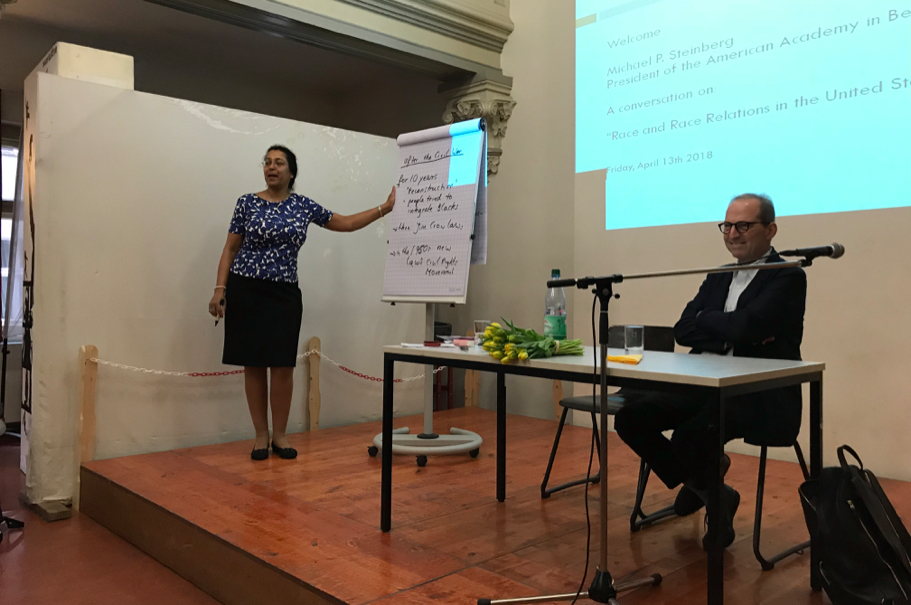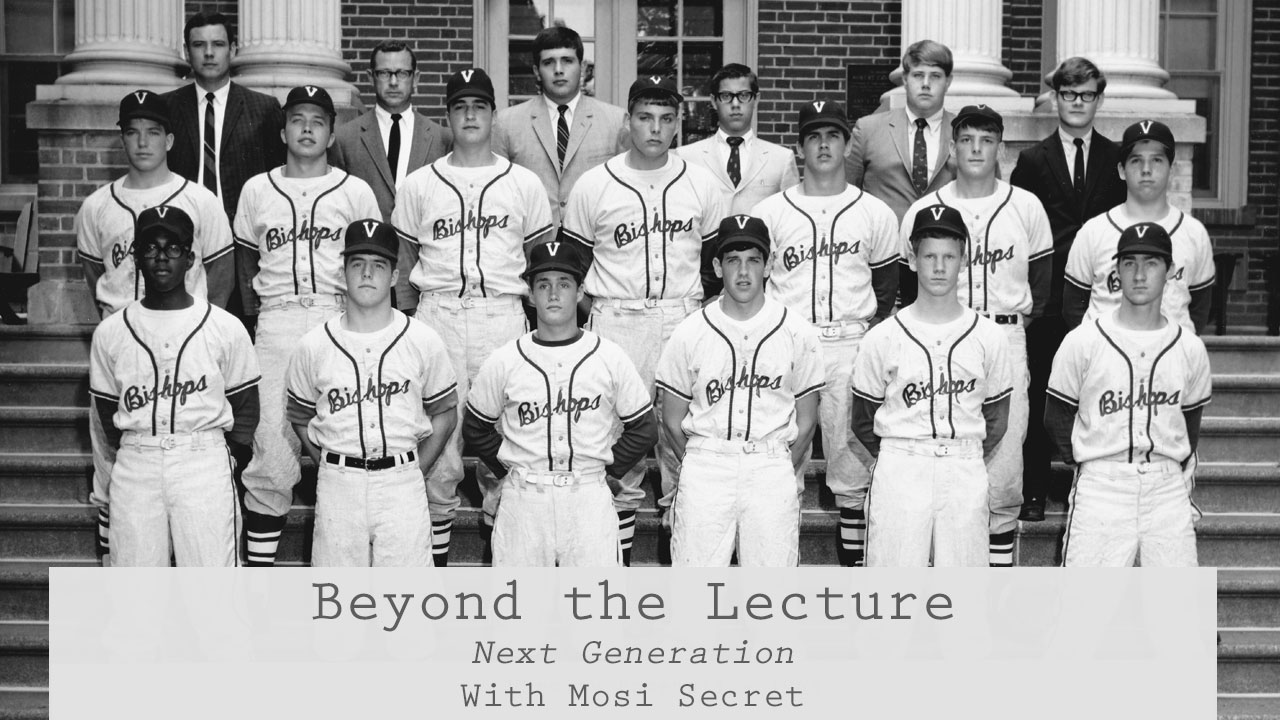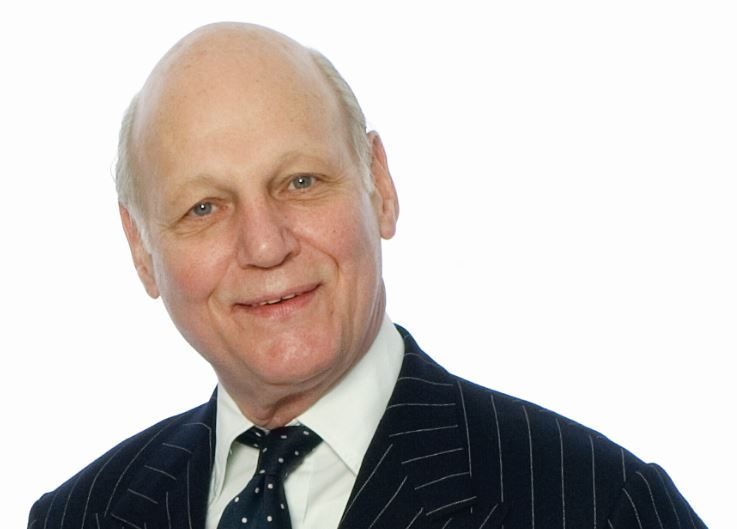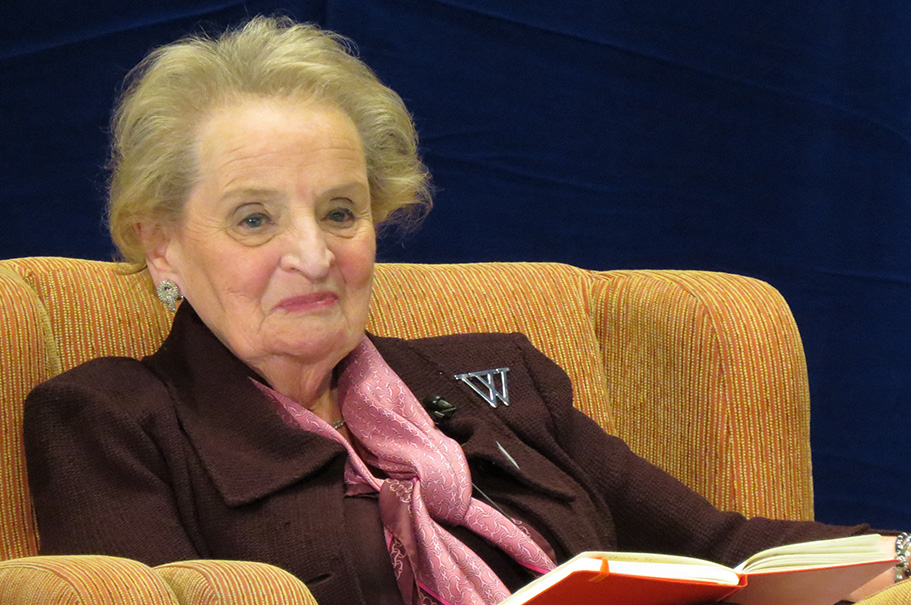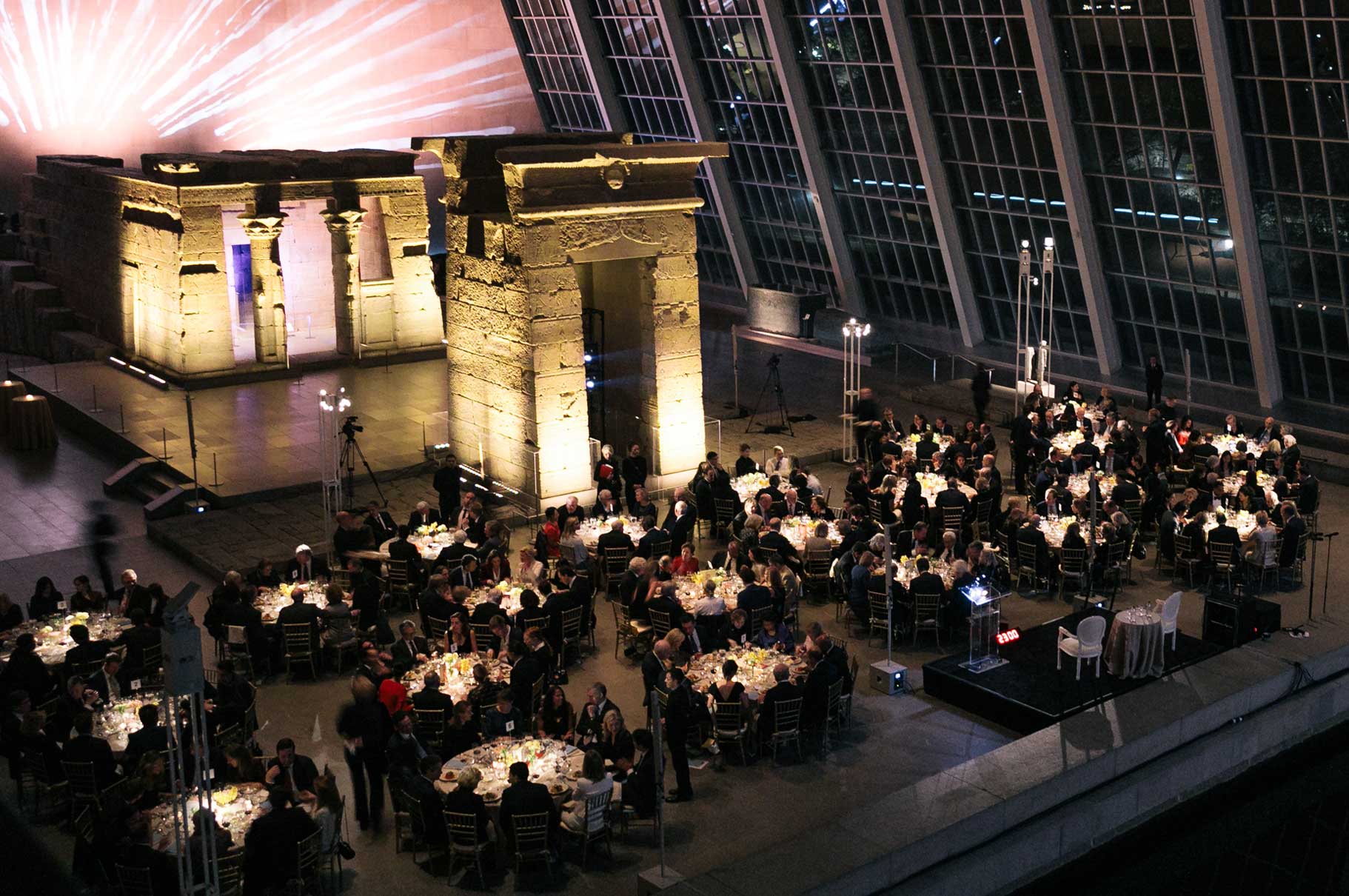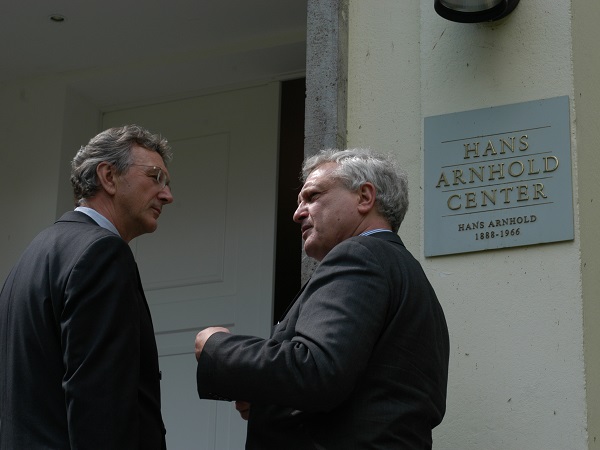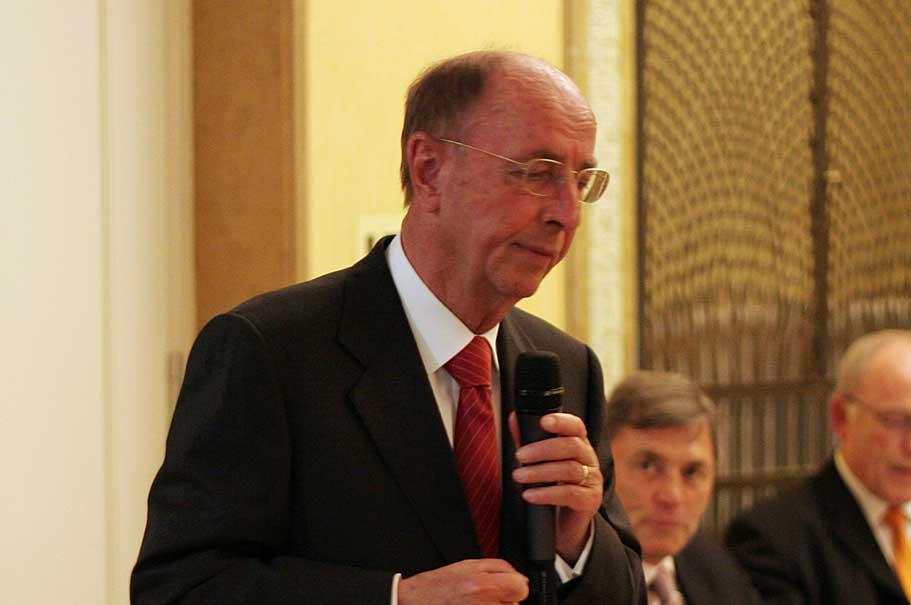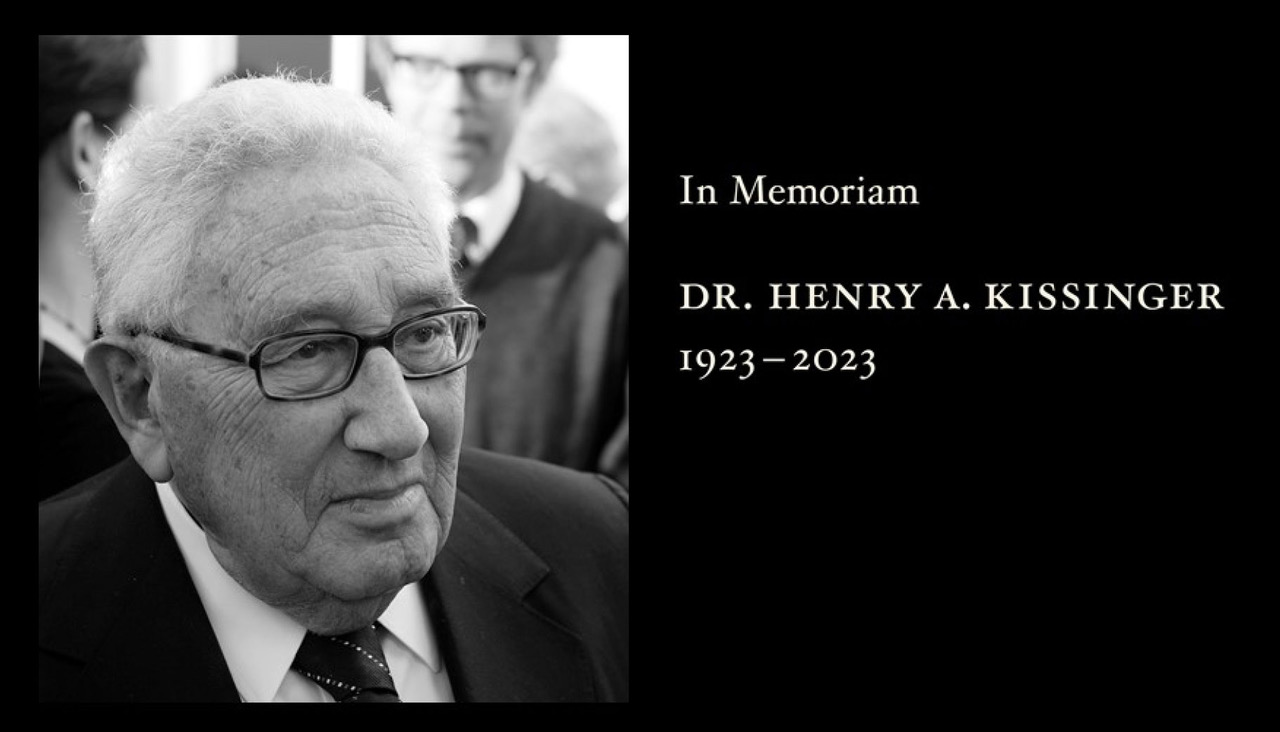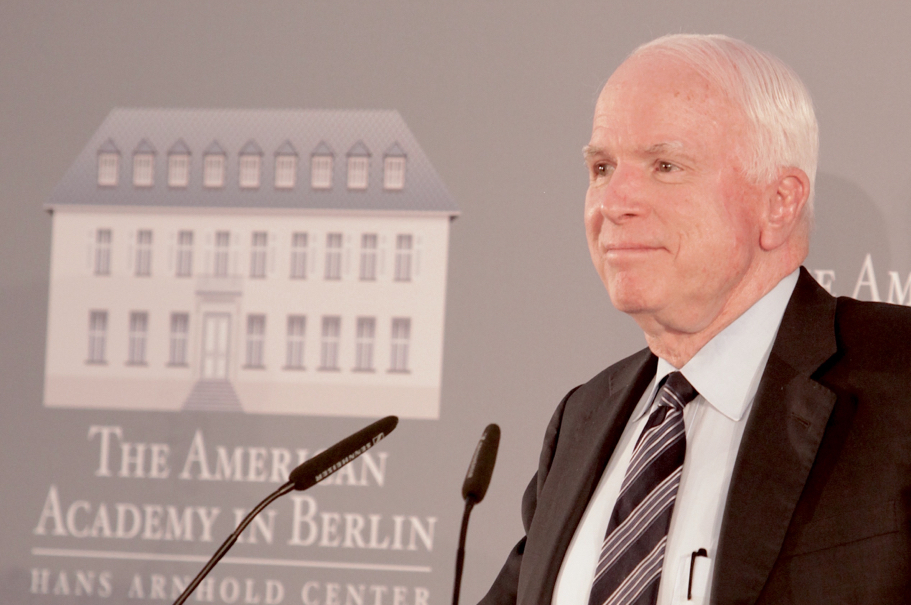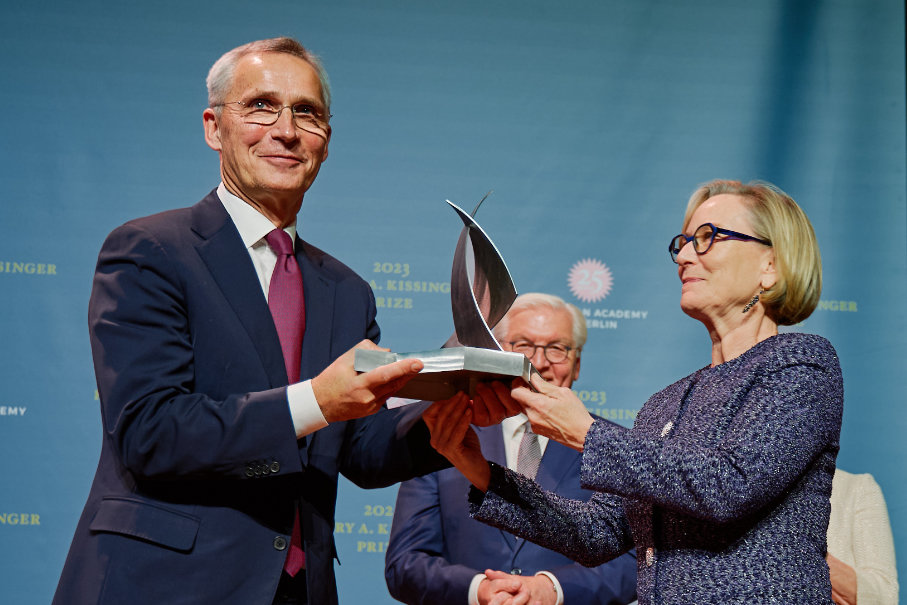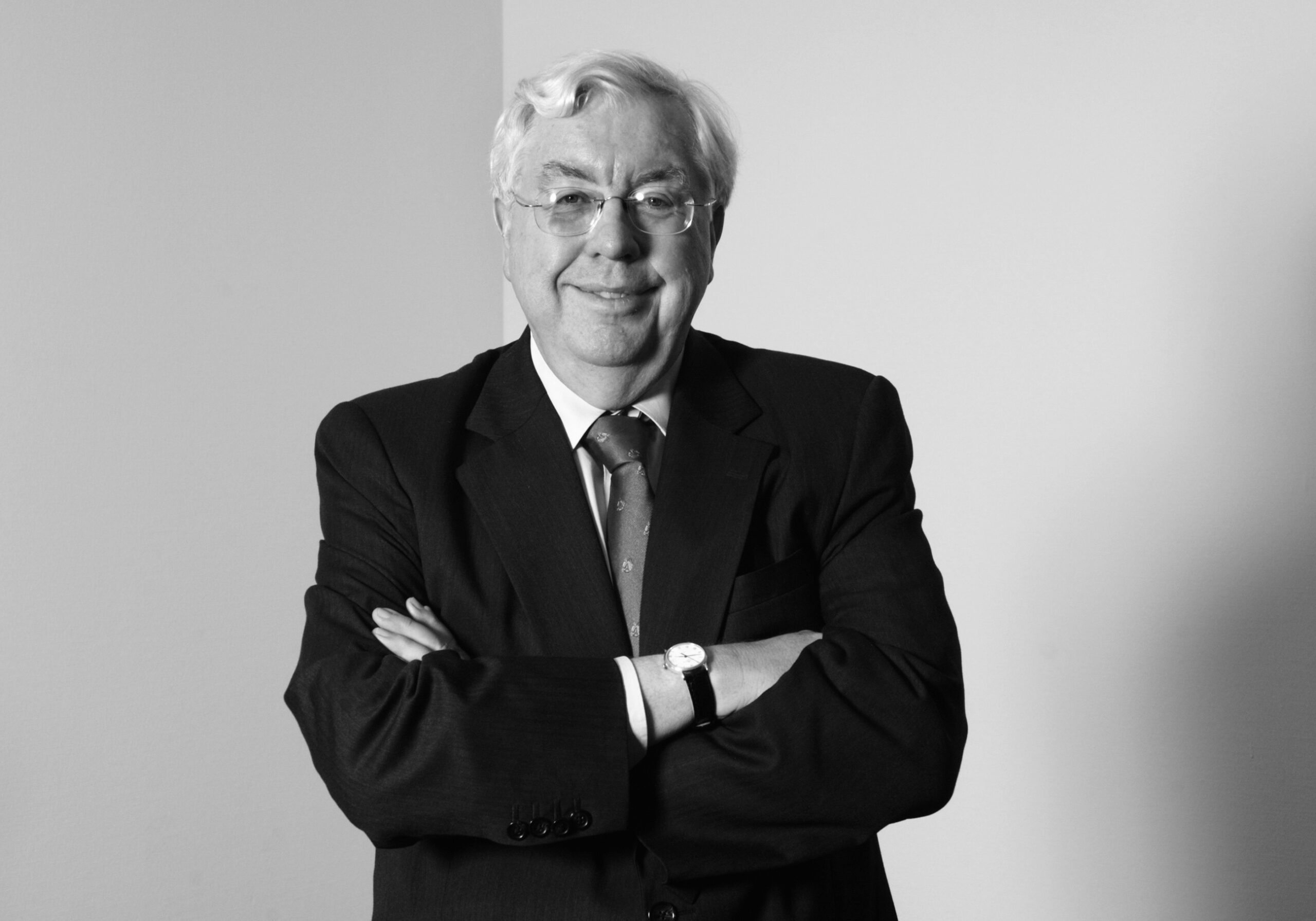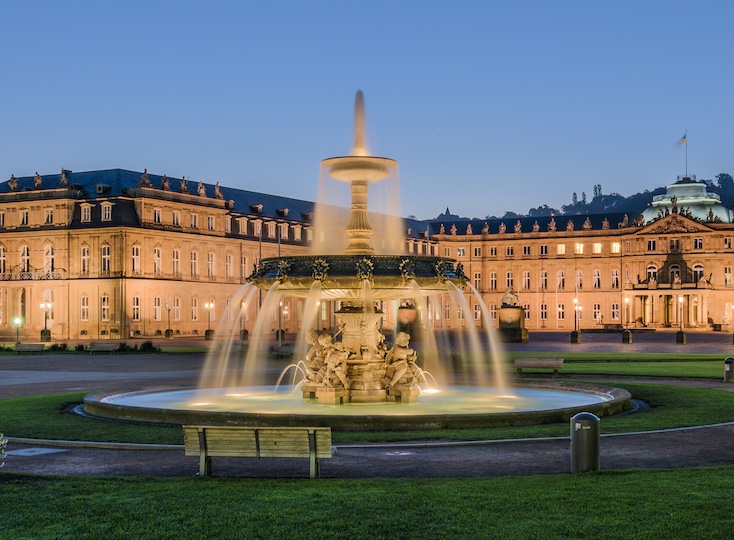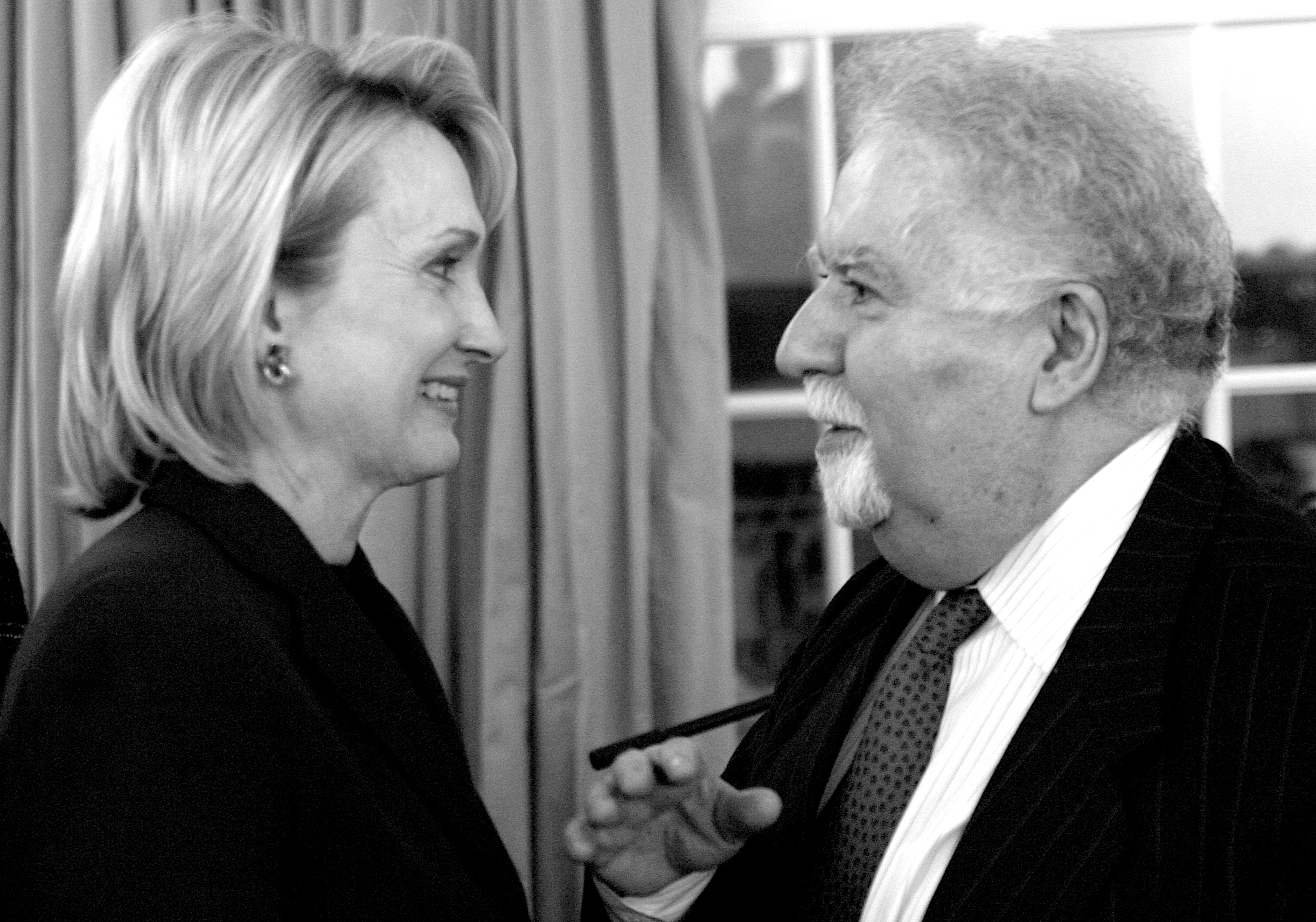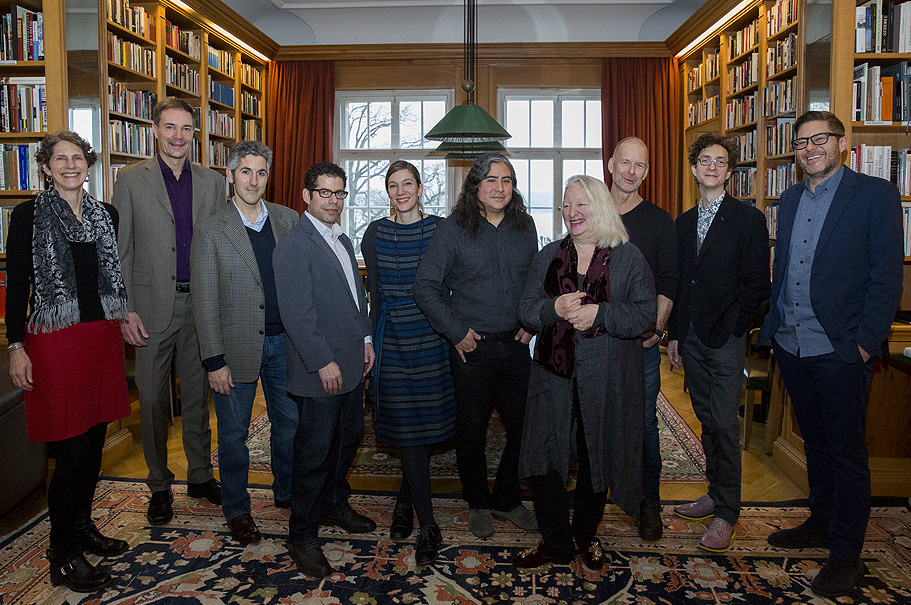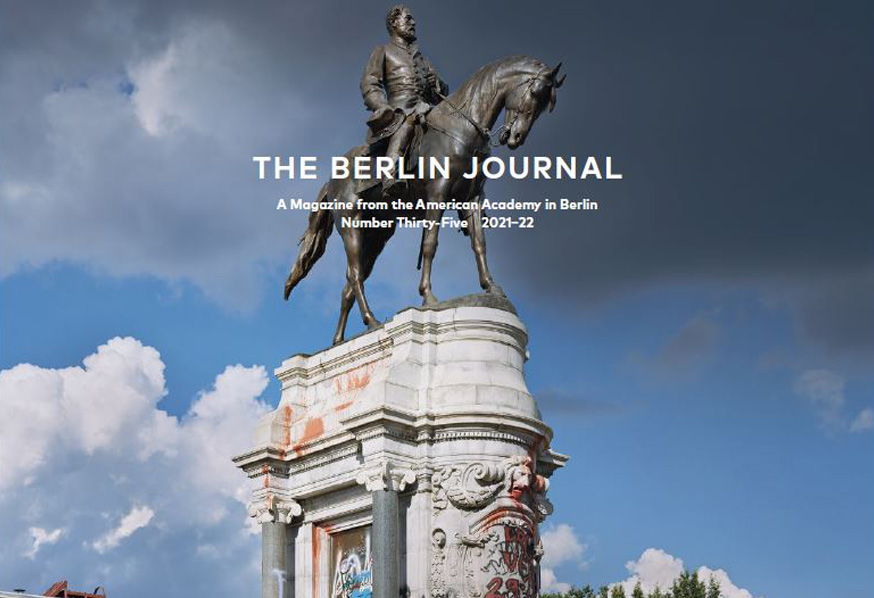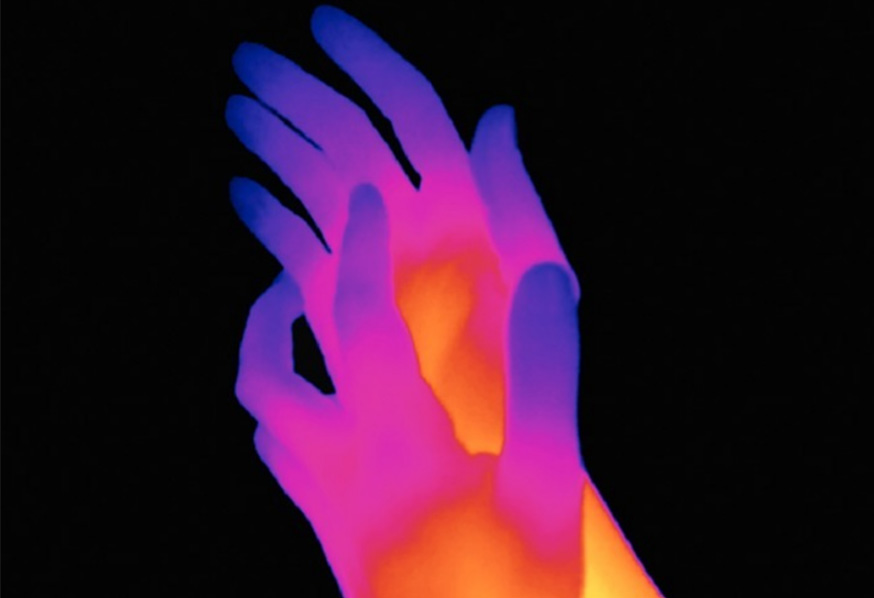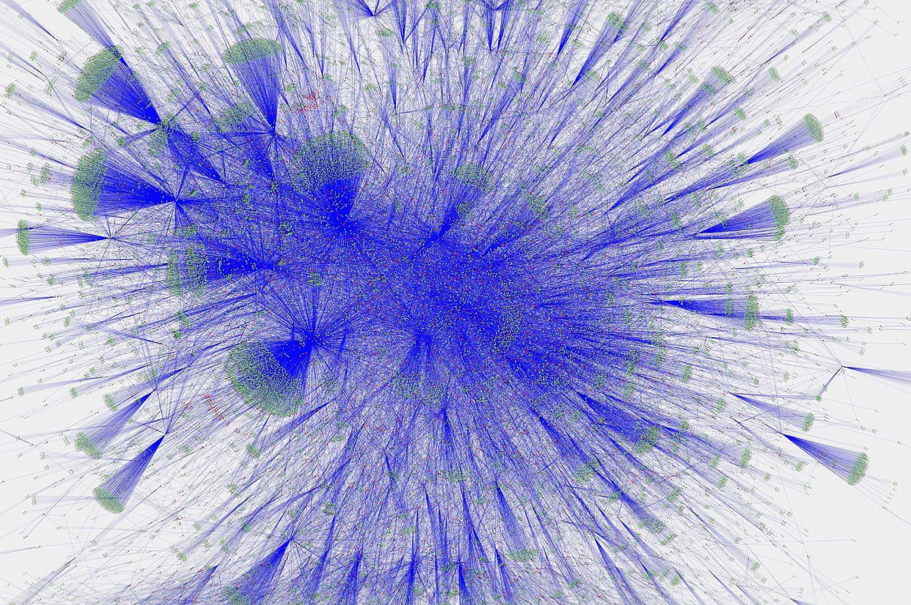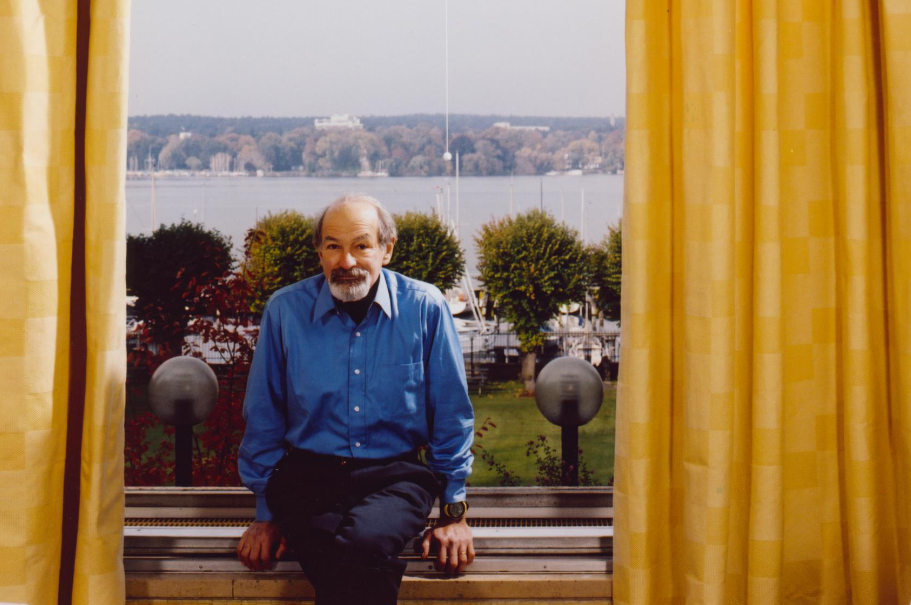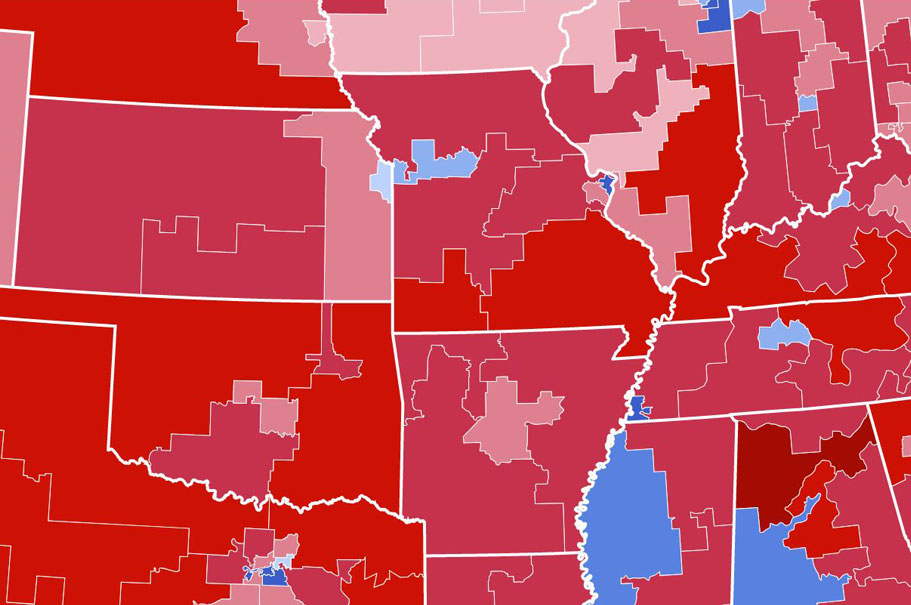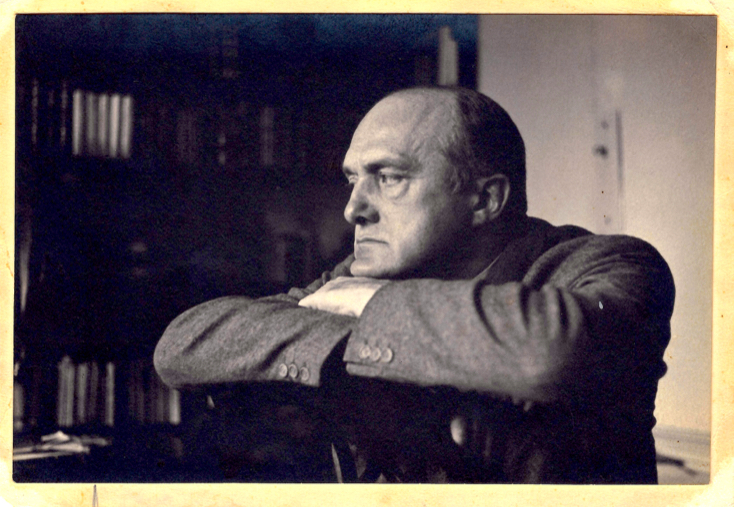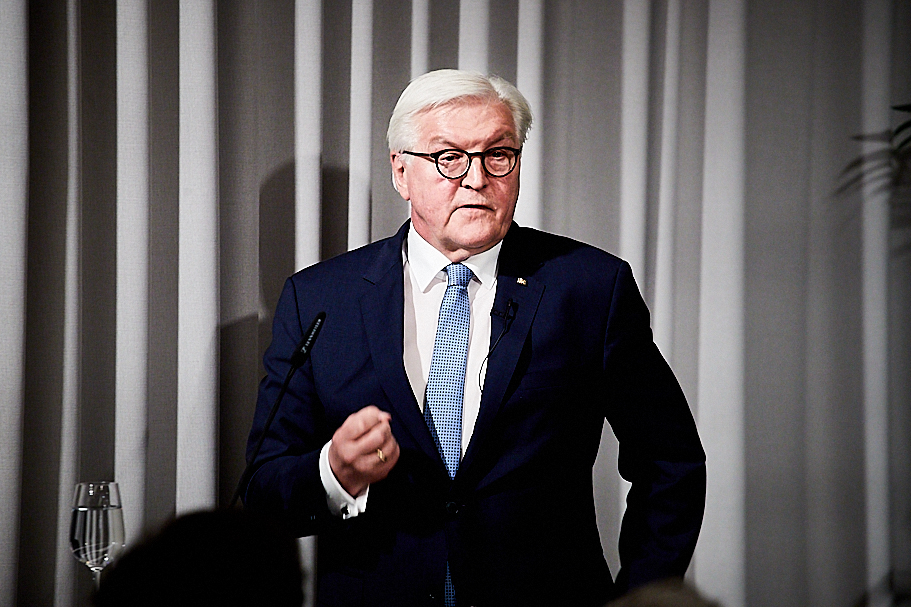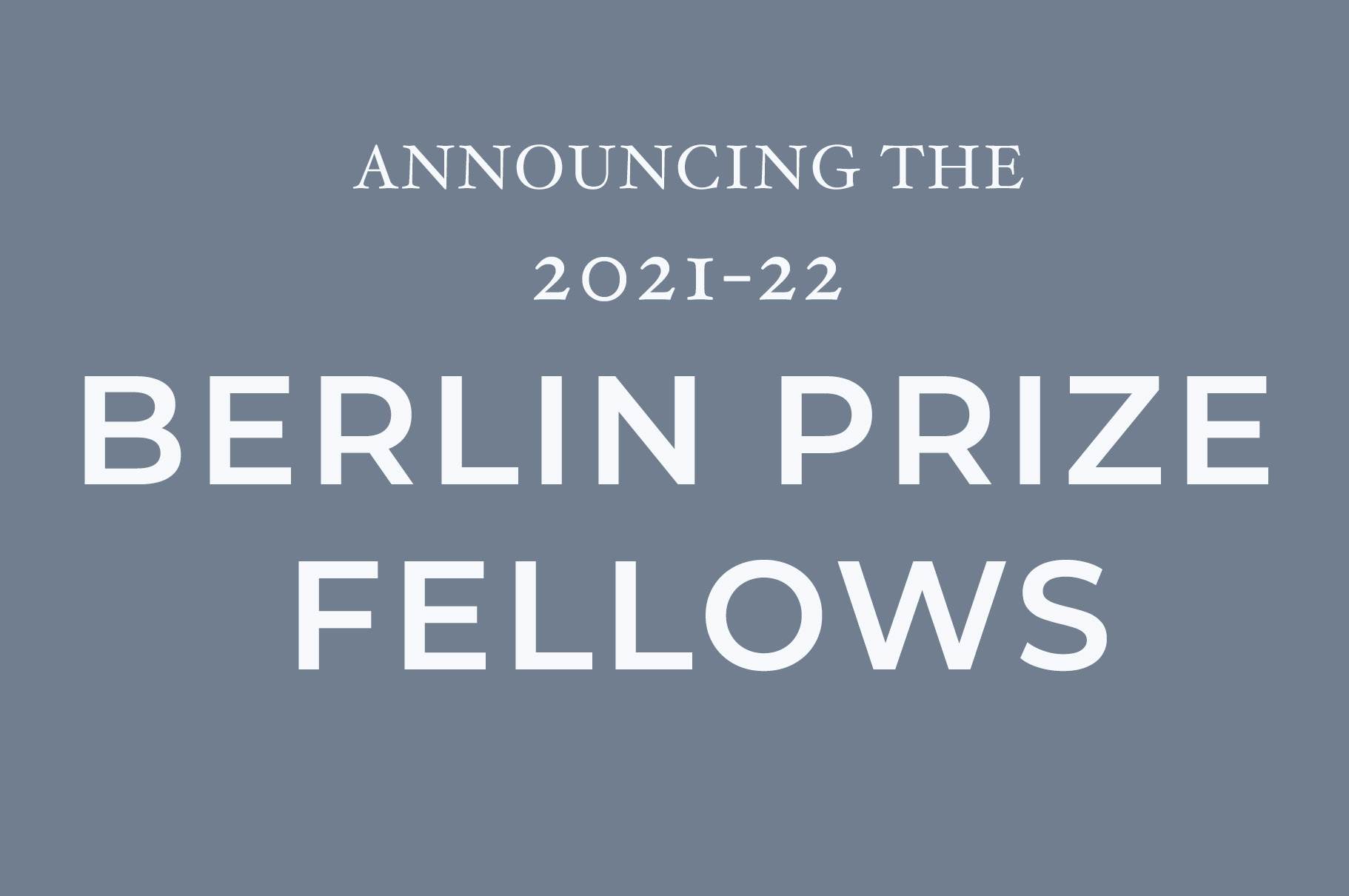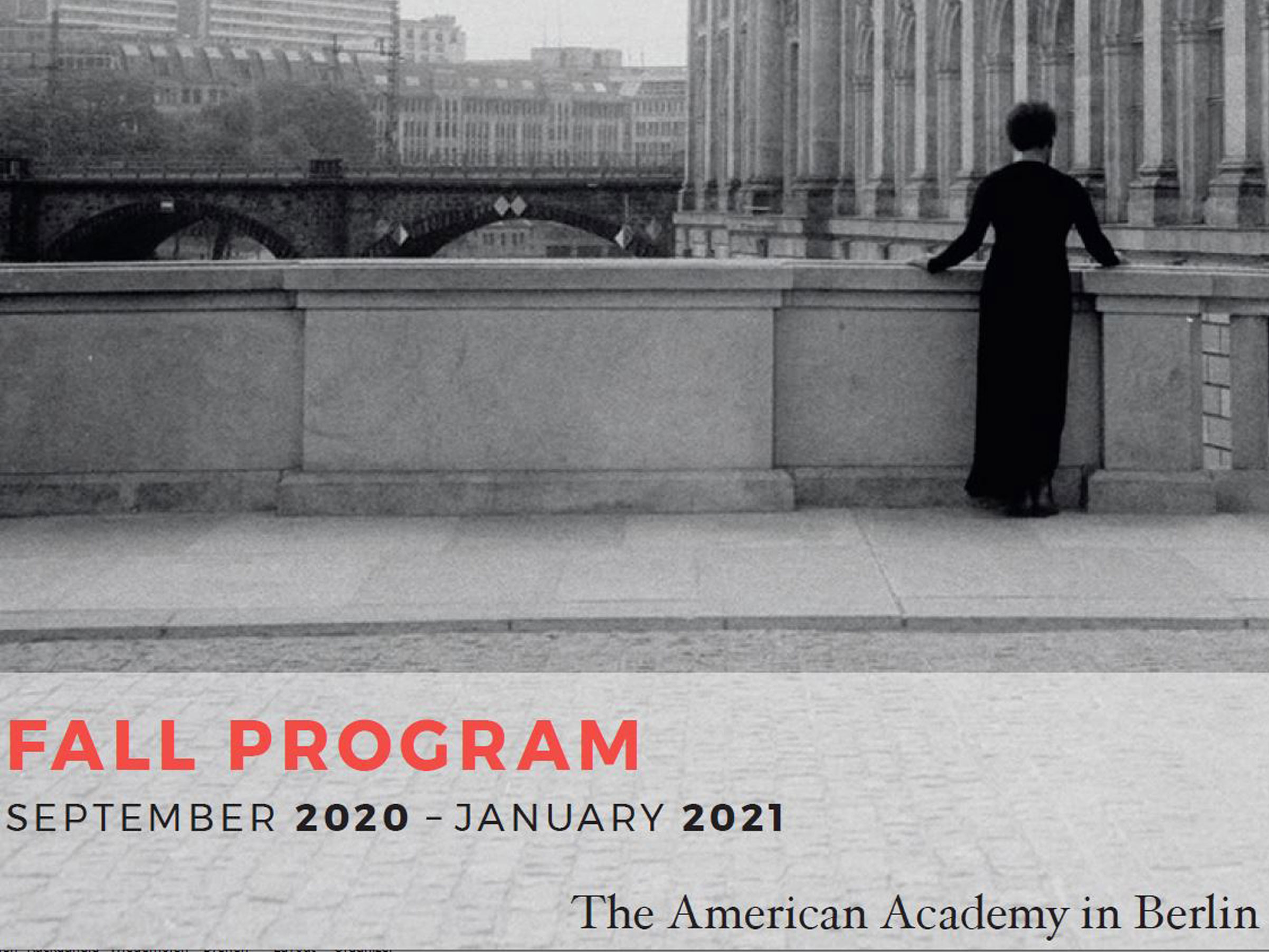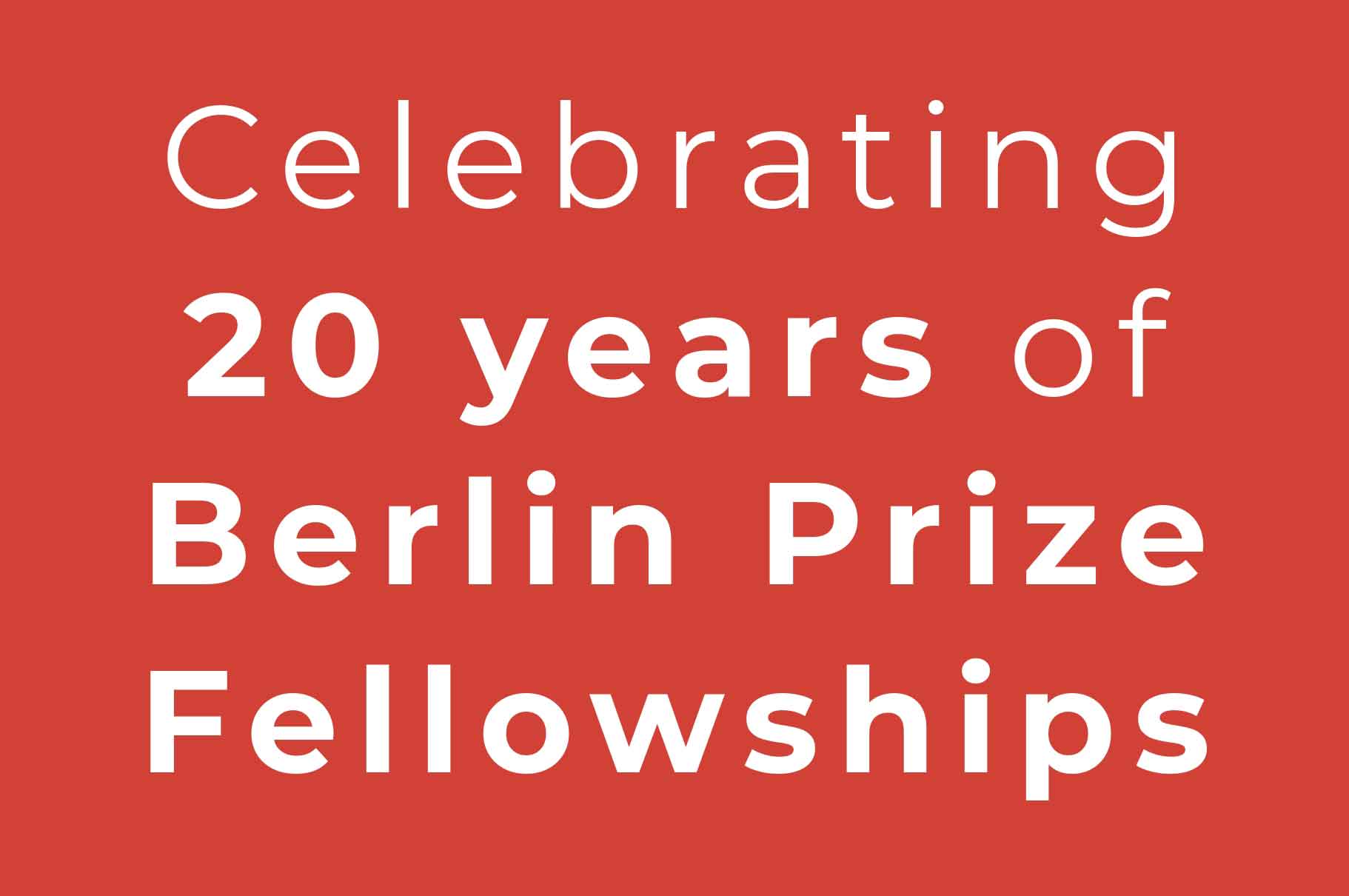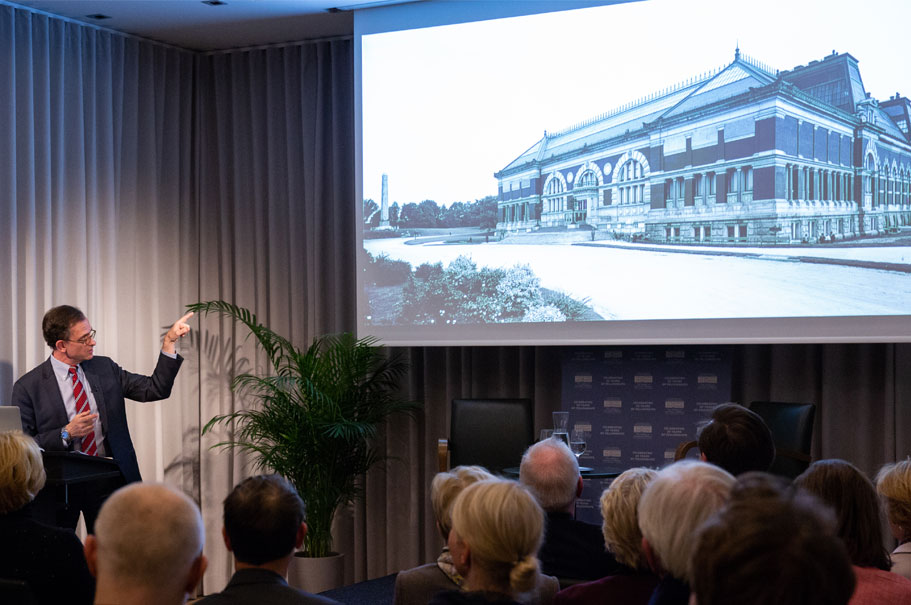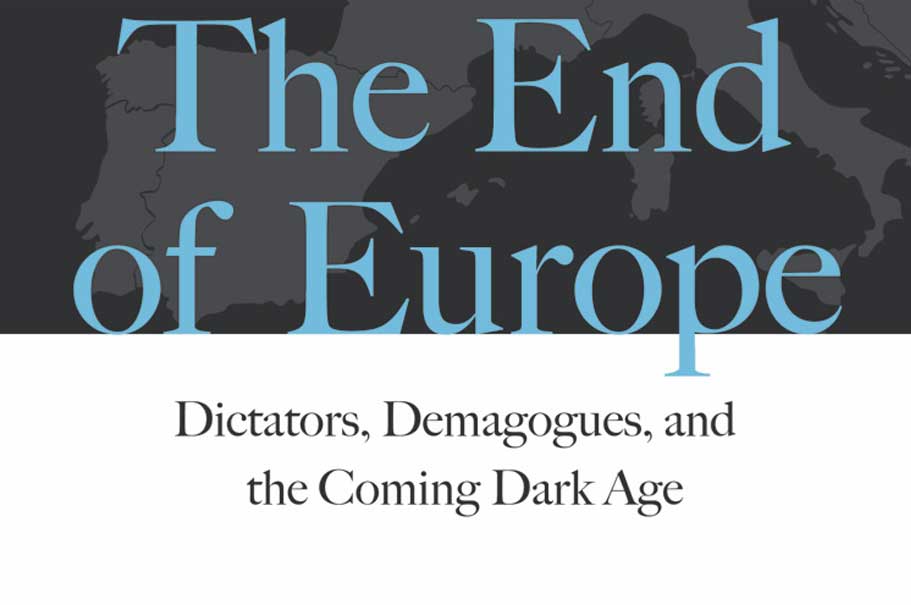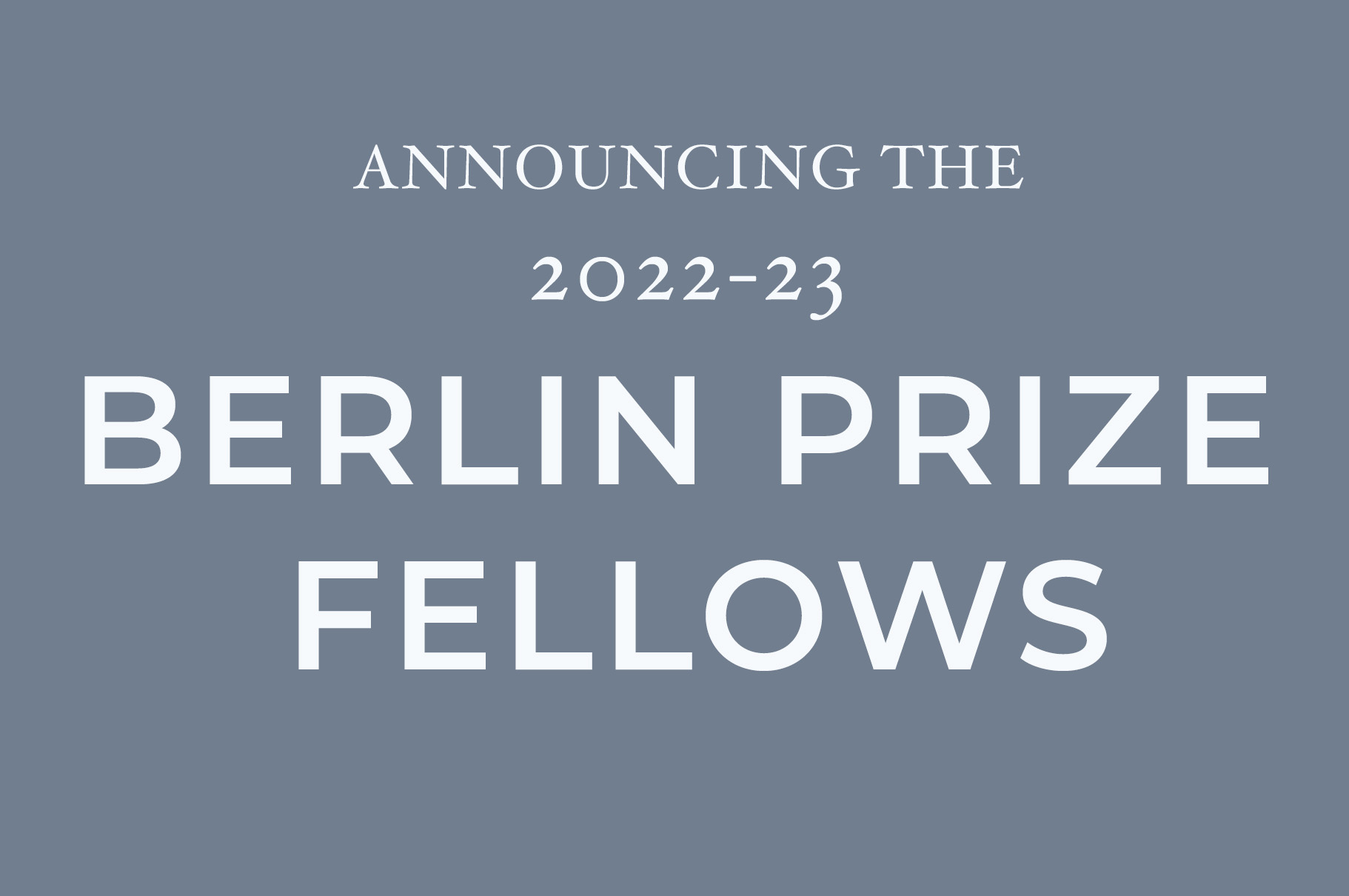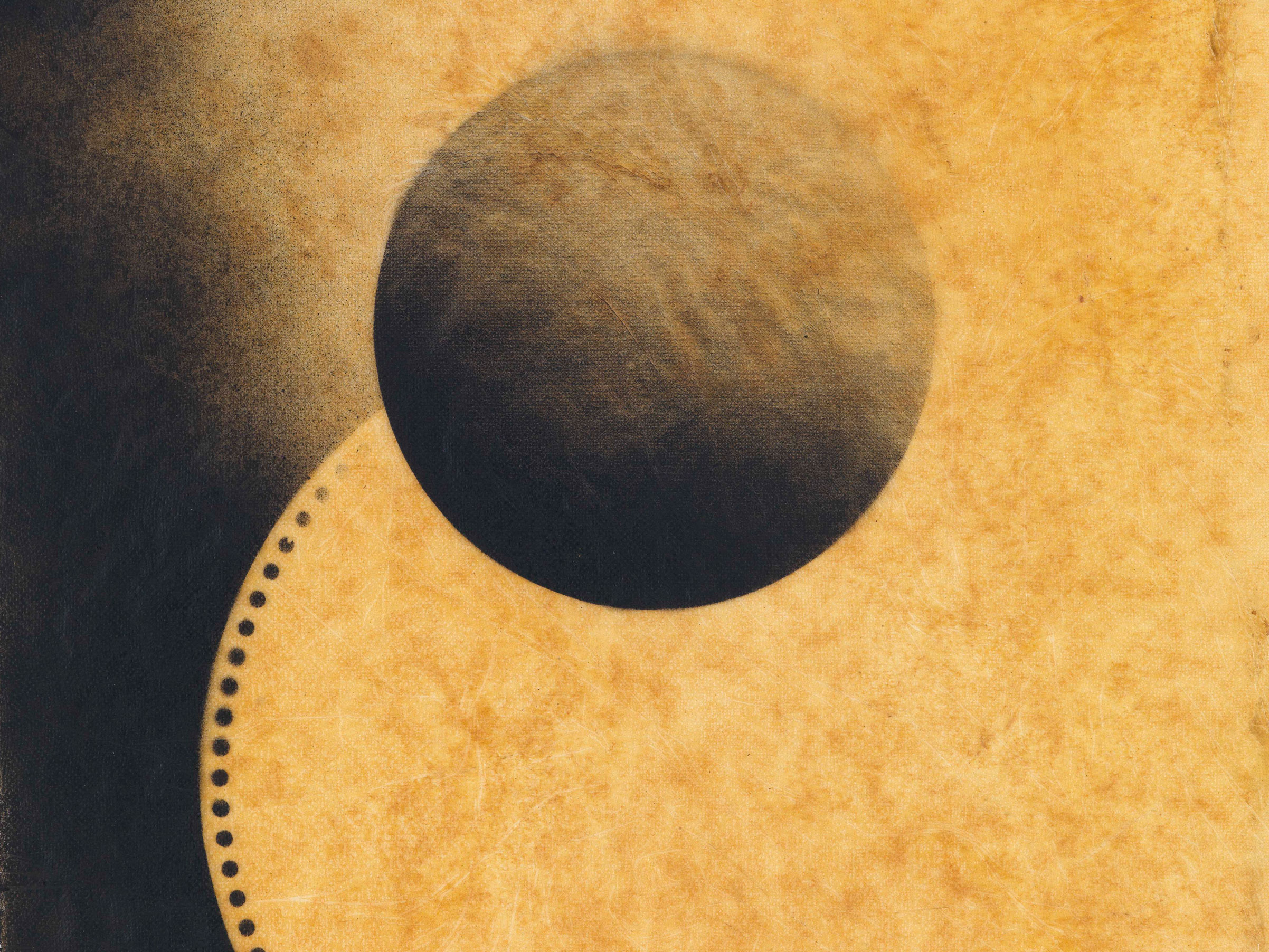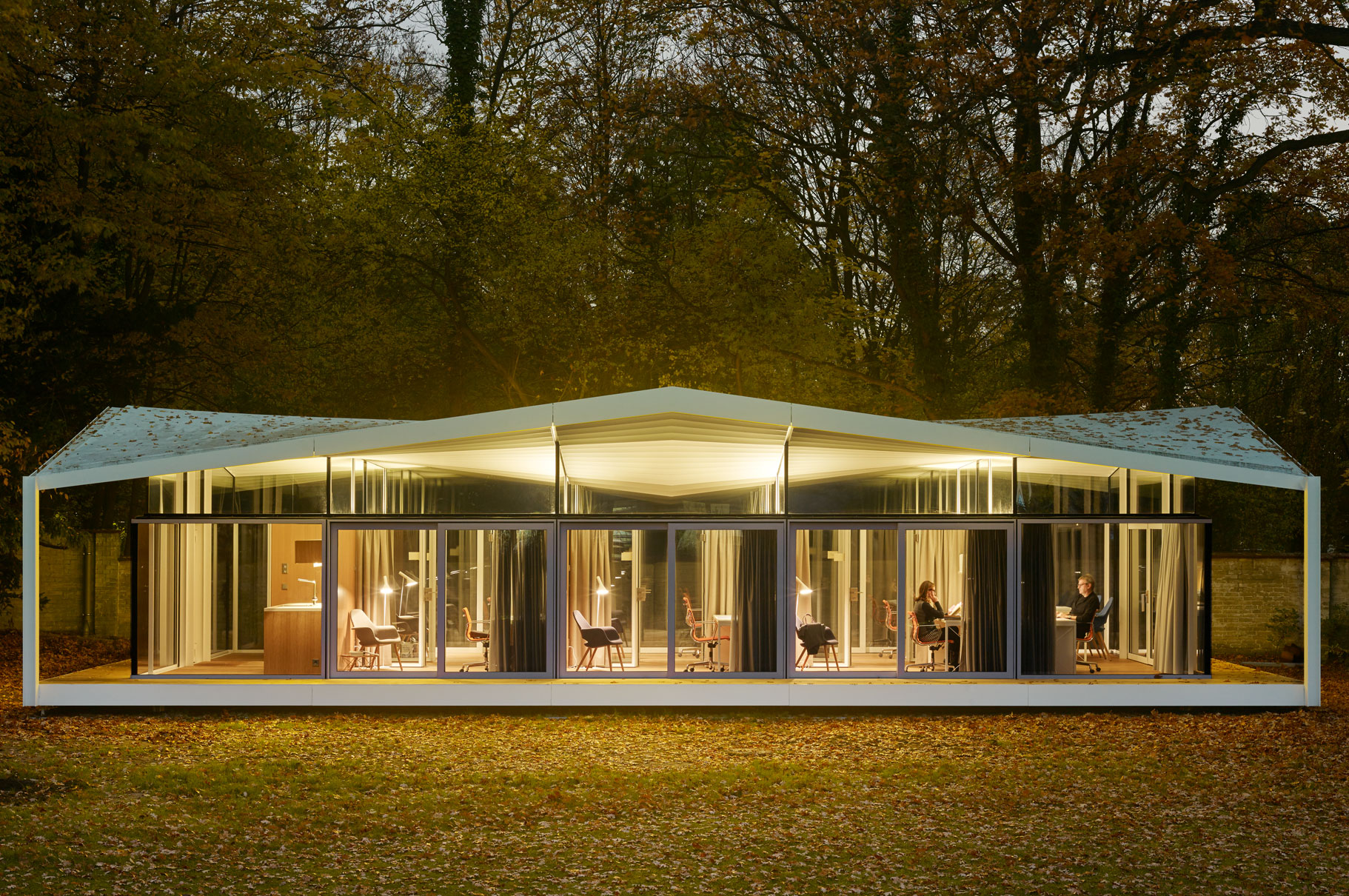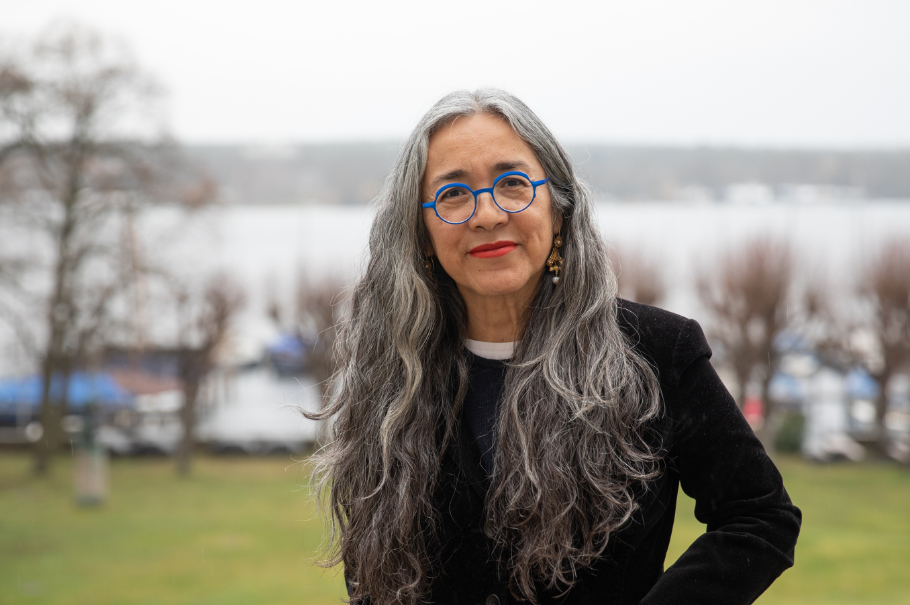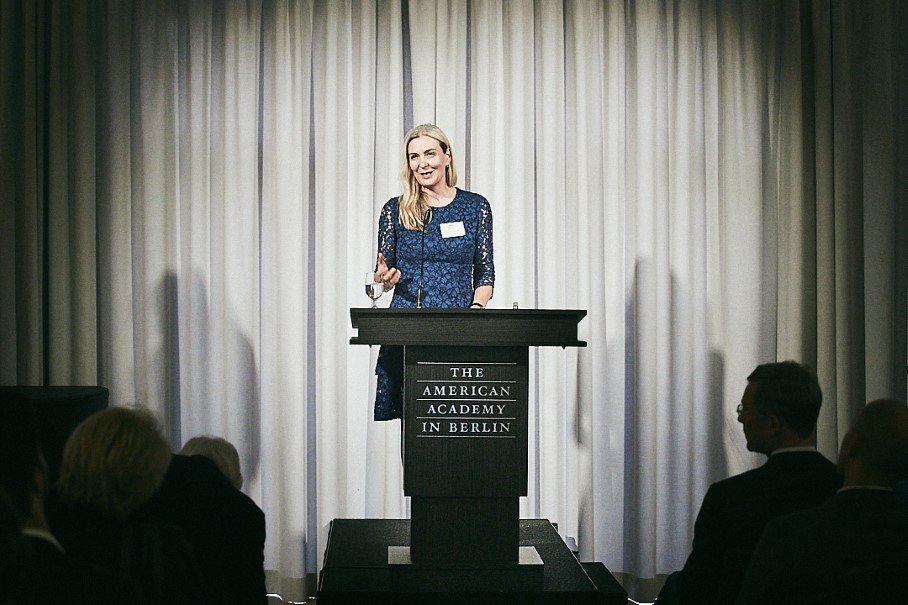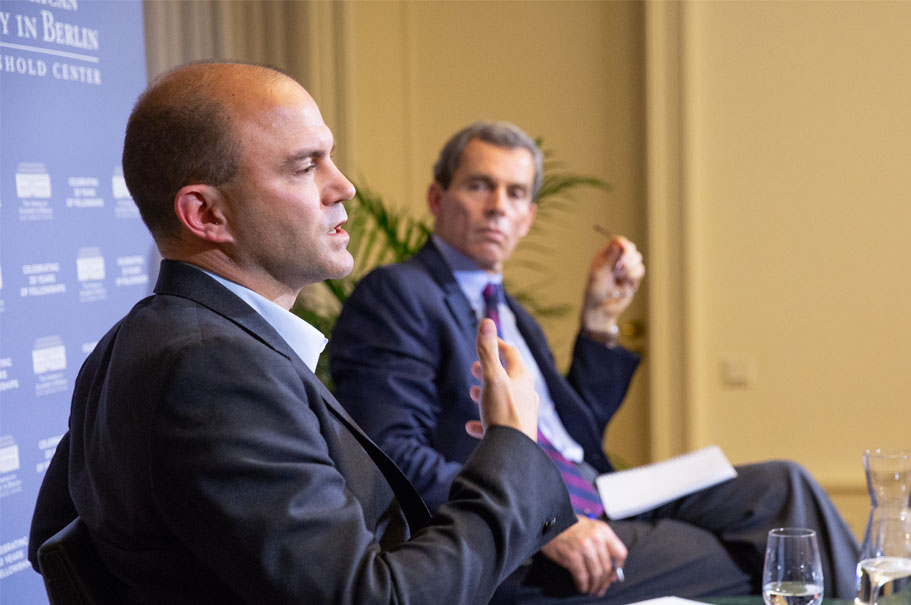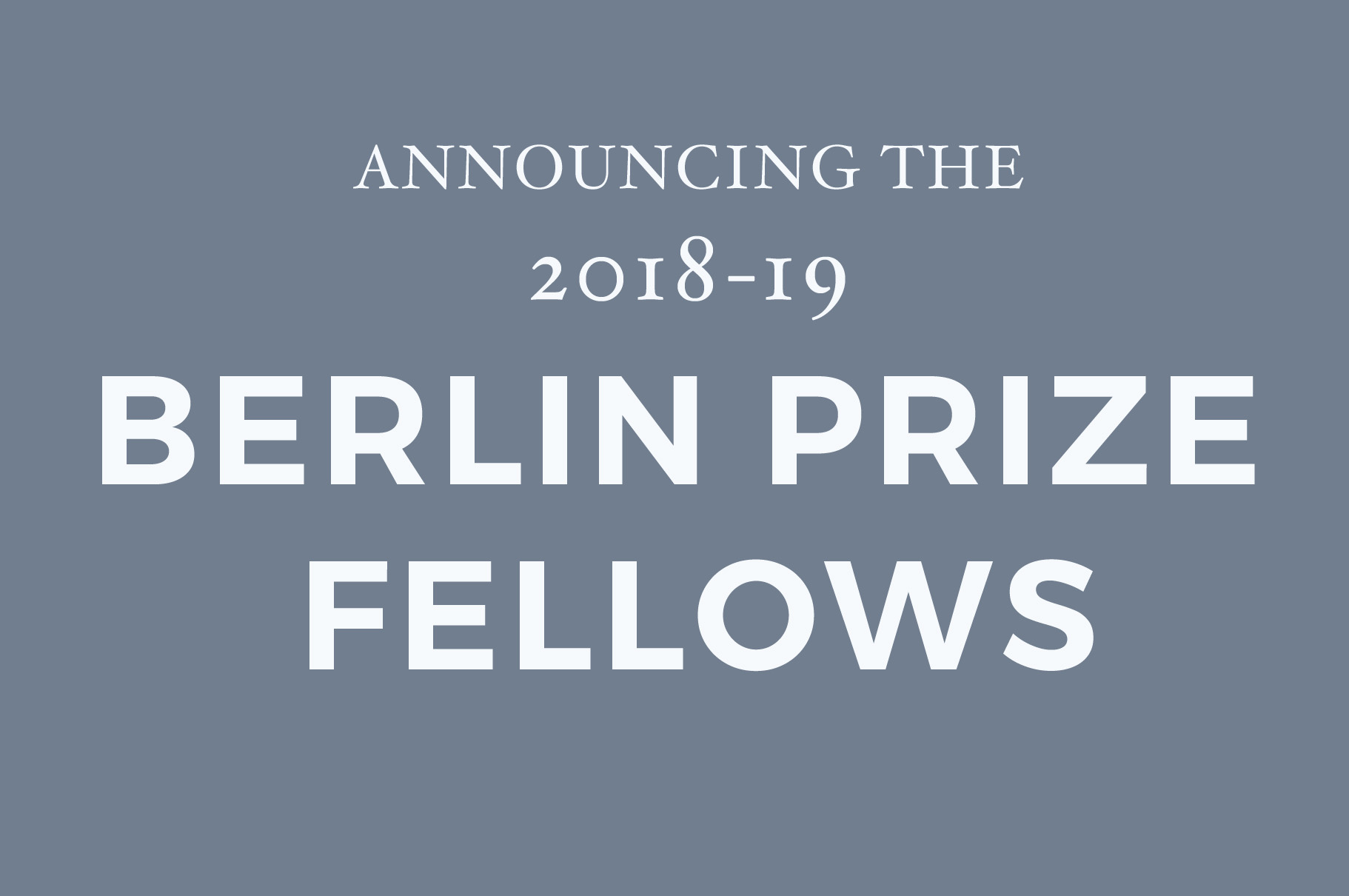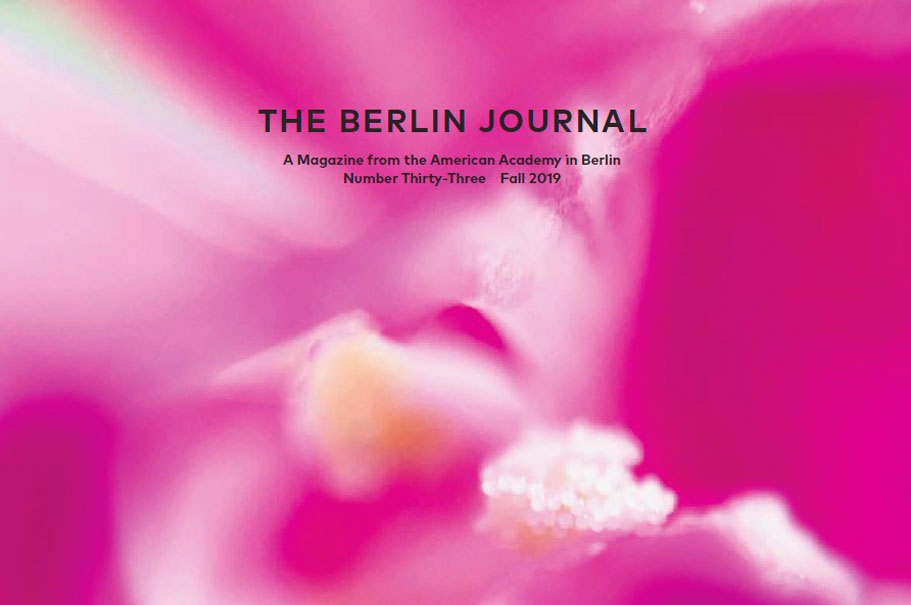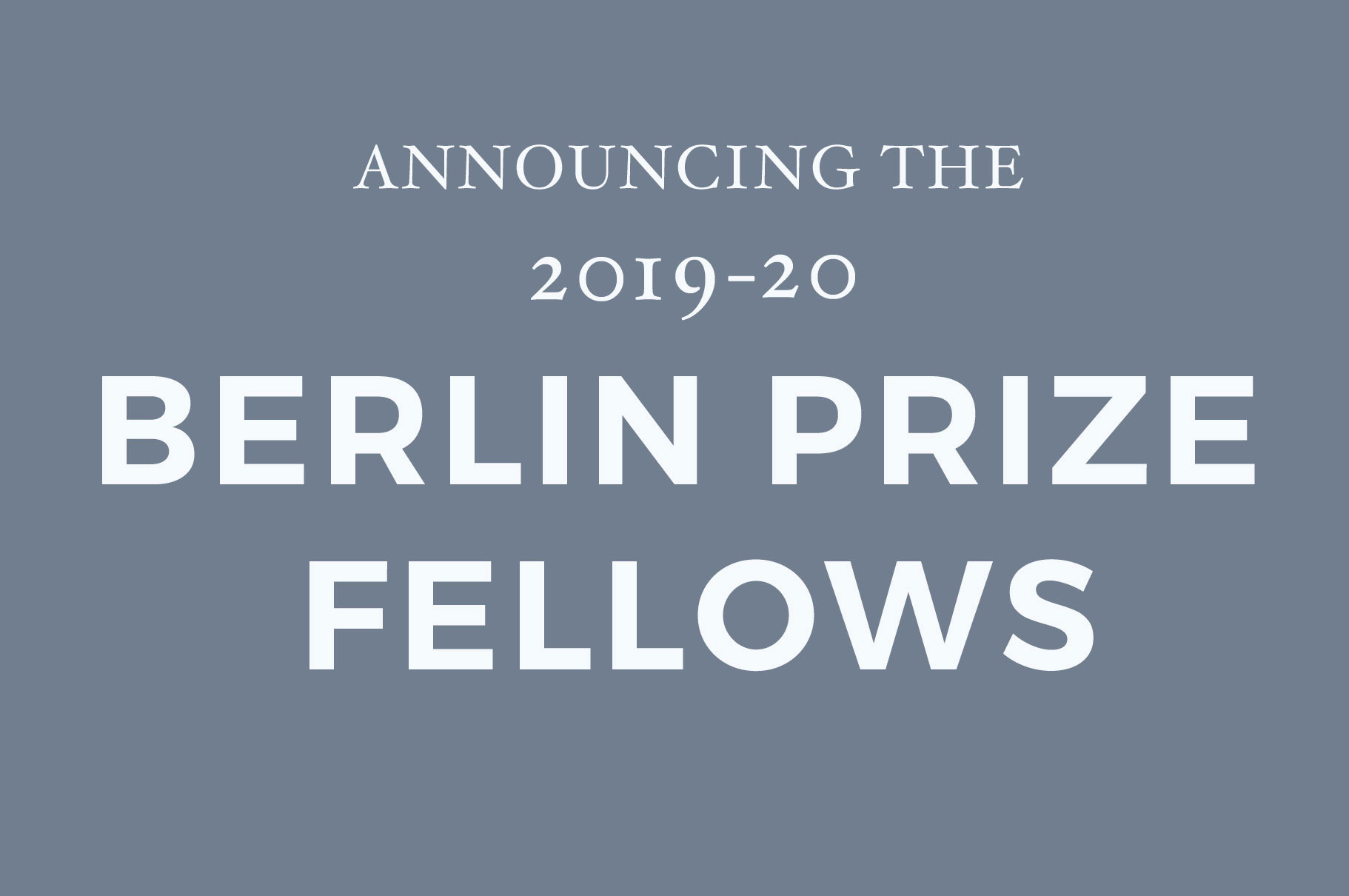
Announcing the 2019-20 Class of Berlin Prize Fellows
BERLIN—May 7, 2019—The American Academy in Berlin has awarded Berlin Prizes—semester-long fellowships in Berlin—to twenty scholars, writers, and artists for fall 2019 and spring 2020.
Academy chairman Gahl Hodges Burt said: “The American Academy in Berlin hosted its first class of fellows in fall 1998. Over two decades later, we’re proud to welcome the outstanding 2019-20 class for semester-long residencies on the Wannsee. In so doing, the Academy steadfastly continues its mission of bringing some of the most innovative American minds to Berlin for interaction with audiences and intellectual counterparts across a broad range of academic disciplines and creative fields. The contacts made at evening events, through institutional partnerships, and among the fellows themselves lead to new intellectual and creative exchanges—and help to galvanize transatlantic relations in lasting and meaningful ways.”
The 2019-20 fellows, chosen by an independent selection committee, will explore an array of topics—some, but by no means all, directly related to Germany. Projects include a look at the future of electrical infrastructure in the face of global climate change, the effects of industrial automation on US and German domestic policy, the crises of democracy and immigration in the US and Europe, a history of the postcard, Thomas Mann’s Brazilian mother, North Korea’s ruling class, and novels about an Expressionist choreographer and contemporary African American women in New York and Los Angeles, a short story collection, and new music compositions.
The highly coveted Berlin Prize is awarded annually to scholars, writers, composers, and artists based in the United States who represent the highest standards of excellence in their fields. Fellows receive a monthly stipend, partial board, and accommodations at the American Academy’s lakeside Hans Arnhold Center, in Berlin’s Wannsee district.
The Berlin Prize provides recipients with the time and resources to step back from their daily obligations to engage in academic and artistic projects they might not otherwise pursue. Fellows work with local individuals and institutions in the American Academy’s well-established network, forging rich connections and lasting transatlantic relationships. During their stay, fellows engage audiences through public lectures, performances, and readings, which take place at the Academy as well as throughout Berlin and Germany.
The Fall 2019 Class of Berlin Prize Fellows
Marco Abel
Professor and Chair, Department of English, University of Nebraska at Lincoln
Marco Abel will start a new book project, tentatively entitled “Left Politics without Leftism: A Counter-Genealogy of Germany’s Political Cinema,” which investigates the political cinema of the 1960s and 1970s. Abel’s project constitutes a prehistory to his book The Counter-Cinema of the Berlin School, which won the German Studies Association Prize for Best Book 2014.
Angela Flournoy
Writer, Brooklyn, New York
Angela Flournoy, author of The Turner House, a finalist for the 2015 National Book Award, will work on her second novel, a series of stories about the lives of young African-American women in New York and Los Angeles. The novel imagines these cities now and in twenty years, interweaving stories of new patterns of migration with the individual lives of black women.
Tatyana Gershkovich
Assistant Professor of Russian Studies, Department of Modern Languages, Carnegie Mellon University
Tatyana Gershkovich will work on “Tolstoy Red and White: 1920 – 1928,” a book about the struggle over Tolstoy’s legacy between the radical Left in the Soviet Union and Russian émigré intellectuals in Berlin, as the latter sought to preserve a coherent cultural community in the face of dispersion, linguistic isolation, and poverty.
Renée Green
Artist, Writer, and Filmmaker; Professor, School of Architecture and Planning, Massachusetts Institute of Technology
Renée Green is an artist, writer, and filmmaker. Pacing, her two-year project at Harvard University’s Carpenter Center for Visual Arts, culminated in the spring 2018 exhibition Within Living Memory, which inhabited all public spaces in Le Corbusier’s Carpenter Center building. In Berlin, she will continue working on a film based on the materials gathered during her research on the Carpenter Center and the Casa Curutchet, in La Plata, Argentina, Le Corbusier’s only built structures in the Americas. Her project addresses conditions of residency and displacement, subjective experience, institutional memory, notions of progress, architectural modernism, and the inevitability of decay, all the while rethinking how time is marked.
Suki Kim
Writer; Contributing Editor, The New Republic
Suki Kim is an investigative journalist, a novelist, and the only writer ever to have lived undercover in North Korea for immersive journalism. She is the author of the New York Times bestseller, “Without You, There Is No Us: Undercover Among the Sons of North Korea’s Elite, and in Berlin,” she will be working on The Portrait of Complicity, a narrative investigative nonfiction book on war and its psychological consequences generations later, seen through North Korea’s ruling class.
Steven Klein
Assistant Professor, Department of Political Science, University of Florida
In “After Crisis: Karl Polanyi and the Politics of Capitalism,” Steven Klein draws together the thought of Polanyi with the tradition of critical social theory to develop a vision of the democratic transformation of the capitalist economy. Klein offers a sustained critique of present-day capitalism, identifying it as a regime of economic authoritarianism within thin, formally democratic institutions.
Adam Ehrlich Sachs
Writer, Pittsburgh, Pennsylvania
Adam Ehrlich Sachs is working on his next novel, tentatively titled “The Ballet Master,” which draws on fairy tale and historical fact to tell the story of an Expressionist choreographer and his daughters at the moment of his break from ballet.
Azade Seyhan
Fairbank Professor in the Humanities, Department of German, Bryn Mawr College
Azade Seyhan’s project focuses on a unique cultural encounter between professors exiled from Hitler’s Germany and institutions of Turkish higher education that offered them refuge and intellectual community. The mandate of the German academic exiles was to mediate the ideals of Enlightenment modernity to the institutions of the young Turkish Republic by various forms of translational activity and cultural transfer. Ernst Reuter, for example, is among the many exiled academics Seyhan discusses. He was the leading figure of an eminent group of émigré German architects and city planners who played a major role in the modernization of urban spaces and edifices as markers of a westernized Turkish identity.
Roberto Suro
Professor of Journalism and Public Policy, University of Southern California
Roberto Suro examines the challenges that recent flows of asylum seeking pose for many Western democracies; in Berlin, he will focus on the city’s multi-decade postwar legacy of migration. Suro aims at developing policy options and proposals based on new understandings of migration flows, political reactions that roil the topic, and post-migration trajectories.
Laura Tyson
Distinguished Professor of the Graduate School; Faculty Director, Institute for Business and Social Impact, Berkeley Haas School of Business, University of California, Berkeley
To help understand how US businesses and policymakers can better respond to the effects of automation on employment, wages, labor-market dislocation, and income inequality, Laura Tyson will investigate the unique features of German business governance, labor-market policies, and systems of training and apprenticeships.
Daniel Ziblatt
Eaton Professor of the Science of Government, Department of Government, Harvard University
Daniel Ziblatt studies the origins of conservatism and the rise of radical Right or right-populist political parties. He argues that the crises of democracy in the US and Europe today can be traced to the changing form of modern center right movements and parties. His work studies the roots of post-war center right politics and how they have shaped—and been shaped by—major episodes of democratization since the end of World War II.
The Spring 2020 Class of Berlin Prize Fellows
Amanda Anderson
Andrew W. Mellon Professor of Humanities and English; Director, Cogut Institute for the Humanities, Brown University
Amanda Anderson will work on her next book project, “The Slow Time of Rumination,” which argues that some of the most influential frameworks for understanding human thought—in psychology, in moral and political philosophy, and in cognitive science—have failed to recognize the quality, form, and significance of slow, persistent ruminative processes. Using examples drawn from literature and memoir, she considers experiences of profound loss, grief, regret, or injury to demonstrate the productive moral purpose of rumination.
Dominic Boyer
Professor of Anthropology; Director, Center for Energy and Environmental Research in the Human Sciences (CENHS), Rice University
Dominic Boyer’s project “Electric Futures”—a collaboration among Rice University, Humboldt Universität in Berlin, and the NUMIES energy research group, in Chile—examines global efforts to design and build new models of electrical infrastructure in the face of global climate change. In Germany, his research includes more than 800 energy cooperatives and 120 remunicipalization initiatives that have been set up since 2005.
Carolyn Chen
Composer, Sound Artist, and Performance Artist, Los Angeles, California
Composer Carolyn Chen places traditional instruments in conversation with everyday sounds and invites participation in musical games and live installations. At the Academy, she will be working on new compositions incorporating movement and storytelling.
Tom Conley
Abbott Lawrence Lowell Professor of Visual and Environmental Studies and of Romance Languages and Literatures, Harvard University
In “The Engineer’s Art,” Tom Conley contributes to a growing academic field that studies literature and the fine arts in relation to the history and theory of cartography. He examines how spatial reason in early modern France informs a range of documents, including maps, novels, poetry, polemical tracts, broadsheets, and atlases. By juxtaposing documents otherwise studied in canonical isolation, Conley points to the concomitant forces of analogy and spatial process—forces that continue to shape media in our age.
Kevin Jerome Everson
Visual Artist; Professor of Art, McIntire Department of Art, University of Virginia
Artist Kevin Jerome Everson’s filmic oeuvre combines scripted and documentary moments in the lives of working-class African Americans and other people of African descent. Rather than deploying standard documentary realism, he favors a strategy that abstracts everyday actions and statements into theatrical gestures, in which archival footage is re-edited or re-staged, and in which real people perform fictional scenarios based on their own lives.
Moira Fradinger
Associate Professor of Comparative Literature, Department of Comparative Literature, Yale University
Moira Fradinger studies the cultural and political debates, as well as artistic productions, generated around the Argentine 2012 legal reform that de-pathologized gender identity and sexual rights. She will detail Argentina’s contribution to new thinking about gender and sexual-identity struggles, democracy, the family, heterosexuality, female reproduction, and in the most general terms, the human as such.
Veronika Fuechtner
Associate Professor and Chair of German, Department of German Studies, Dartmouth College
Veronika Fuechtner will complete a monograph on Thomas Mann’s Brazilian mother and his construction of “Germanness” and race, and how the novelist’s immigration background profoundly influenced his life and writing. While Mann’s work has been analyzed with regard to sexual difference and the construction of Jewishness, the critical potential of this Brazilian background has remained unexplored.
Paul La Farge
Writer, Red Hook, New York
La Farge will work on “Way Out,” a collection of short stories linked by themes of confinement and escape. The book also looks at Carl Hagenbeck’s invention of the modern zoo—the likely impetus behind Kafka’s story “A Report to an Academy,” which inspired La Farge’s own musings for this collection.
George Steinmetz
Charles Tilly Collegiate Professor, Department of Sociology, University of Michigan
George Steinmetz’s project examines European sociology’s varied engagements with colonial and Continental empires from 1930 to 1960 and their contributions to subsequent sociology and other fields. This imperial research has been oddly erased from the histories of sociology. In Berlin, Steinmetz will look at German sociologists’ involvement with Nazi imperialism in occupied Eastern Europe and colonial plans for Africa.
Liliane Weissberg
Christopher H. Browne Distinguished Professor in Arts and Sciences, Departments of German and Comparative Literature, University of Pennsylvania
Liliane Weissberg’s project focuses on the “Golden Age” of the postcard (1890-1930), noting that postcard writing differed from letter writing by insisting on brevity and questioning the privacy of communication. Drawing on archival sources in Berlin’s Akademie der Künste and the Deutsches Literaturarchiv in Marbach, Weissberg aims to sketch the history of the postcard and its use by important figures, among them Franz Rosenzweig, Sigmund Freud, and Walter Benjamin, and how it came to be regarded as a truly “modern” medium.

